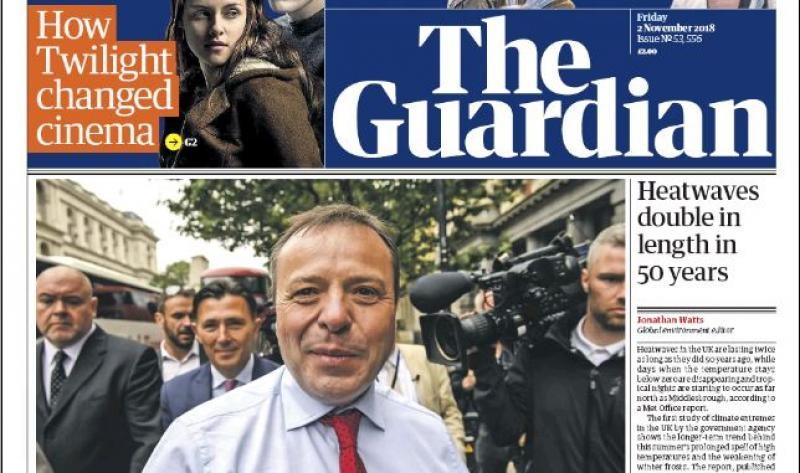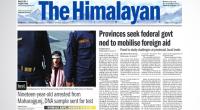 Heatwaves in the UK are lasting twice as long as they did 50 years ago, ice days are disappearing and tropical nights are starting to occur as far north as Middlesbrough, according to a Met Office report.
Heatwaves in the UK are lasting twice as long as they did 50 years ago, ice days are disappearing and tropical nights are starting to occur as far north as Middlesbrough, according to a Met Office report.
The first study of climate extremes in the UK by the government agency shows the longer-term trend behind this summer’s prolonged spell of high temperatures and the weakening of winter frosts.
In line with numerous other research papers on the rise in global temperatures, it also highlights how weather patterns are being pushed off a normal path as a result of human emissions of carbon dioxide and other greenhouse gases.
Until now the annual UK Climate Report has focused on monthly and yearly statistics, but a new supplement adds a series of indices on extreme weather.
Mark McCarthy, the manager of the National Climate Information Centre, said: “Monthly, seasonal and annual climate data provide a valuable record of the changing climate in the UK. However, these average figures have a tendency to mask extreme weather and climate events. So in our latest report we have focussed on those measures which record weather extremes.”
The new report shows that warm spells – when the maximum temperature is above the 90th percentile for the time of year – are becoming much more prolonged. From 1961 to 1990, the average longest warm spell each year was 5.3 days. From 2008 to 2017 this more than doubled to 13.2 days. This year, which is not included in these statistics, was even longer at 17 days.
The south-east has seen an especially striking increase over the same period, up from an average of 6.1 days to 18.3 days.
Tropical nights – when minimum nighttime temperatures remain above 20C – are being measured for the first time. They were almost unheard of until a couple of decades ago. Even the famous hot summer of 1976 never saw any of these nights, which are particularly gruelling for the elderly and infirm because they provide no respite from the heat. Since 1995 they have started to be recorded in London, Kent, the Isle of Wight and even occasionally in Wales and the north-east.
McCarthy said tropical nights were still very rare but he expected them to occur more frequently in the future. “With projections in climate suggesting warmer temperatures, it is useful to have this metric in place so that future changes can be monitored.”
McCarthy said he was most surprised that extremes of hot and cold were changing at different speeds. While the temperature on the hottest day of the year has risen roughly in line with the average annual rate of warming since 1961, the coldest day has warmed at twice that rate. In the 30 years until 1990, the bitterest winter night in the UK averaged -8.5C. From 2008 to 2017 it was -6.8C.
Parents who walk their children to school in the depths of winter may also have noticed there is less ice on the path than during their own childhoods. This is confirmed by the metric of “icing days”, which shows that the average number of days each year with freezing temperatures has fallen from 4.8 to 3.2. In the south-east last year there was not a single day averaging below 0C.
The weather is becoming a little wetter and more dreary. The maximum daily deluge each year has risen by 17% from 64mm to 75mm, while the longest wet spell has increased from an average of 12.4 days to 12.9 days.
The longest dry spell has become shorter, falling from 20.5 days with less than 1mm of rain to 18 days, though this year has brought such severe droughts that many farmers have had poor harvests. Many have already had to feed their winter food stocks to their animals and face increased costs as a result. In August the government was forced to relax rules on how much groundwater farmers were allowed to use after agriculture bodies warned continued dry weather could lead to food shortages and increased prices.
Last month the UN’s top climate body warned that unless global temperature rises are held to 1.5C above pre-industrial levels, the world is likely to face catastrophic impacts from climate change, with flooding, droughts and extreme heat all more prevalent. Governments will meet in Poland in December for the latest round of negotiations over how to implement and strengthen the recommendations of the 2015 Paris agreement.


